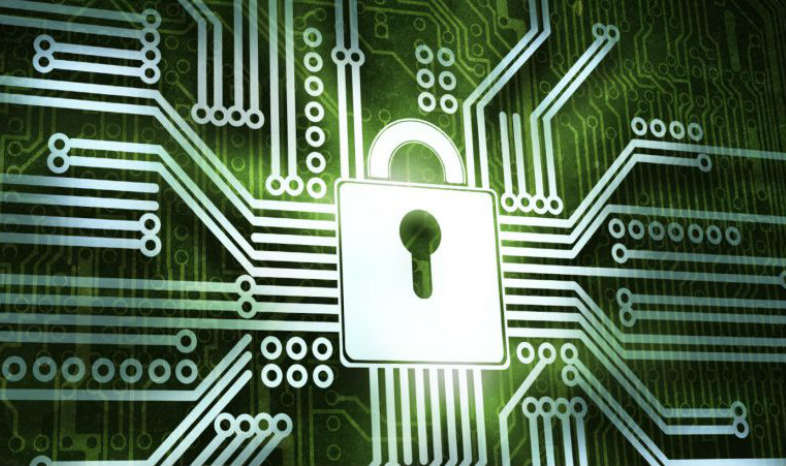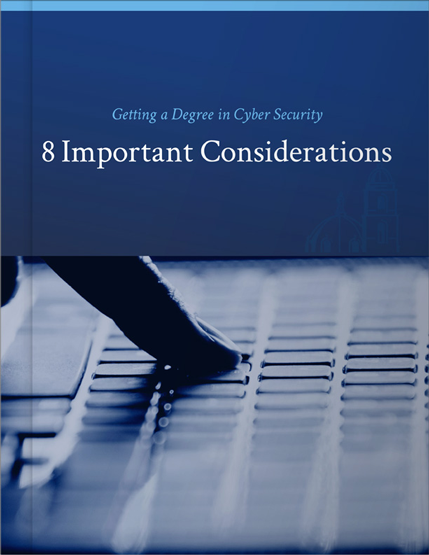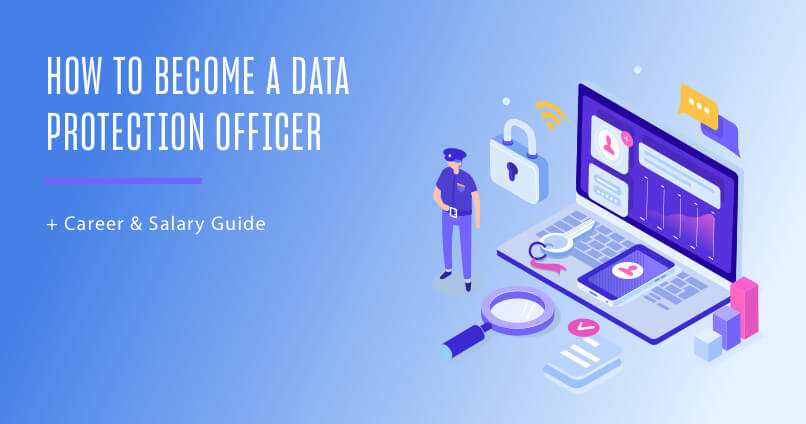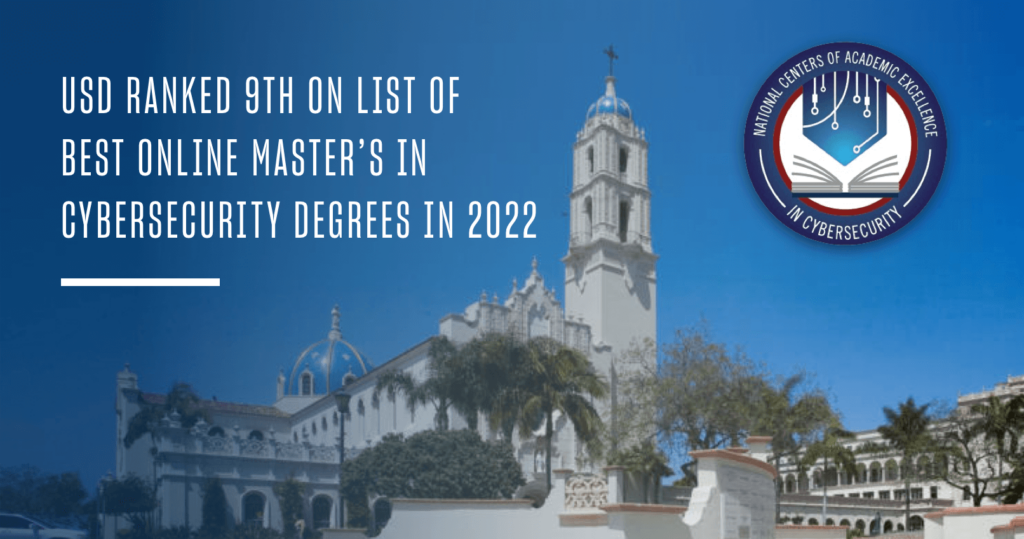Cyber crime is here to stay — affecting everyone from citizens and their governments to small businesses and the world’s biggest companies. The threat is so pervasive that millions of skilled cybersecurity professionals are needed to safeguard identities, data, online networks and financial assets from highly skilled hackers.
This has created incredible cybersecurity career opportunities for specialists with the right combination of education and experience. It has also prompted the academic world to introduce a range of new on-campus and online cybersecurity degree programs.
But how do you evaluate the many cybersecurity degree options to determine which ones might be ideal for you? Here are nine tips and strategies for identifying and choosing from among the best cybersecurity schools and programs.
1. On-Campus vs. Online Cyber Security Degree Programs
Even if you live next door to a college or university that offers a top-notch cybersecurity degree program, you’ll want to thoroughly explore your online cybersecurity degree options. Not only do they tend to be more affordable, but the best online degree programs are just as academically rigorous, if not more so, than their on-campus counterparts.
Another benefit of earning your cybersecurity degree online is the opportunity to interact with and learn from fellow cybersecurity professionals from around the country and the world, since many top programs strongly emphasize and facilitate this interactive component.
Finally, one of the biggest advantages is flexibility. Many schools that offer cybersecurity education online have designed programs with working professionals and families in mind, so students can better balance the demands of work and family life.
2. Evaluating the Importance of a Master’s Degree
Cybersecurity certifications can be extremely helpful, and many institutions are now offering bachelor’s degree programs in cybersecurity. But in an industry where salaries are considerably higher than average (top positions paying up to $500,000 and median salaries around $100,000), earning a master’s degree will put you in the best position to compete for countless six-figure jobs.
A master’s degree in cybersecurity can equip you the tools you need to become a leader in any organization and to effect positive change in combating and mitigating cybersecurity threats. Because the unemployment rate in cybersecurity is extremely low (with far more open positions than qualified professionals to fill them), earning a cybersecurity master’s degree means job security is practically guaranteed.
3. School Reputation
Reputation matters. Yet, when it comes to choosing where you will obtain your master’s, the criteria you used for your undergrad degree doesn’t necessarily apply. While you want to make sure you get your online degree from a university of the highest quality and caliber, it’s not the overall school reputation that matters so much as the school’s reputation in your field of study. In other words, the department and program matters more than the school’s reputation. For cybersecurity, the top schools are not the traditional Ivy League institutions you might think of.
It’s paramount to focus on schools that possess a strong reputation in cybersecurity. After graduation, when you are applying to jobs or looking for a promotion, a cybersecurity program with a strong reputation will carry a lot of weight. So, how do you determine what schools have the best reputation in your field? Here are some tips:
- If you are currently working in a related field, talk to coworkers, managers and peers to get recommendations.
- Research ranking reports such as the U.S. News and World Report.
- Use LinkedIn to reach out to former students of various programs and ask them for their feedback. Some colleges will also provide you with this information if you ask.
- Evaluate the professors in each department. Look at their background, including their teaching experience and their professional experience in the field.
- Identify the top companies in your field, and then look to see where their cybersecurity experts received their master’s degrees.
It is important to realize that the field of cybersecurity is growing and evolving so quickly that some of the most innovative programs can be relatively new — so, just because a program is new, doesn’t mean it isn’t good. In this case, looking closely at the professors and program affiliates that may have partnered with the university to create the program can help you gauge its true caliber. And while the school’s reputation should come secondary to a department or program reputation, the school’s overall ranking can also be a very helpful indication of a new department’s strength.
See What a Cyber Security Masters Program Looks Like for Working Professionals
4. Curriculum & Objectives
Curriculum is one of the most important considerations when choosing an online cybersecurity master’s program. Because the world of cybersecurity is constantly changing, it’s important to seek out a master’s program that doesn’t just teach skills but also provides you with the tools you need to be a lifelong learner in the field. That’s because, as adversarial tactics change daily, cyber experts must be prepared to constantly update their skills.
Learning to defeat adversaries from theoretical as well as tactical perspectives — and developing the capability to evaluate tools that can accomplish these goals — should be the ultimate mission of a master’s degree in cybersecurity, as this type of thinking and skill set is imperative for long-term success. While every person’s goals will differ, selecting a multi-disciplinary program that focuses on leadership in conjunction with cybersecurity strategy and management is recommended.
It is also vital to choose a program that works closely and collaborates with the greater cybersecurity community. By collaborating with local, regional and national players in the field, schools keep their curriculum current and relevant — an extremely important factor in cybersecurity education — enabling them to best prepare their students for immediate job placement after graduation.
[FREE GUIDE] Eight Important Considerations for Getting a Cybersecurity Degree
5. Faculty Reputation
Especially in cybersecurity, you’ll want to learn from skilled instructors with a wealth of experience in the field. Look for indicators that the faculty is diligent about staying on top of the latest changes and advancements amid this fast-changing landscape.
Many cybersecurity-focused colleges and universities will have a list of faculty members with bios; but if they don’t, ask them for one. And don’t hesitate to reach out to professors to ask them questions about their background or about the program itself — most will be happy to meet or speak with you.
6. Total Costs & Opportunities for Financial Assistance
Along with being an undeniable career game-changer, a degree in cybersecurity is also a significant investment. Cybersecurity master degrees typically range anywhere from $20,000-$40,000. But just because a program is expensive doesn’t necessarily mean you should count it out. Be sure to fully research all of the scholarships and grants offered at schools that interest you, since such financial assistance can significantly reduce the total price.
7. Flexibility & Work / Life Balance
As we discussed earlier, many online degree programs are designed to include a great deal of flexibility to support the work/life balance of those who enroll. But it is important to make sure you are clear on how much of the program is online. While some programs are 100% online, others are hybrid, which means you take some classes online and some on campus. There are also programs that require you to be on campus for an extended period of time, say two weeks, at some point during the program. Make sure the cybersecurity degree program you choose is as flexible as you require.
You should also consider how many classes you are required to take per semester and if there are any deadlines on program completion (i.e., restrictions on taking more than three years to complete the program).
8. Length of Program & Start Dates
Be sure to understand how long it will take you to complete your degree at your pace. If you are only taking one class per semester, how many years will go by before you receive your degree? On the flip side, how quickly will you be able to complete your degree at the university you choose?
Looking at start dates can also impact your decision. Some schools have rolling admissions and admit students each semester, which would allow you to start your degree immediately or better plan your start date around your schedule. Others, however, start students once a year, which could mean waiting a while before beginning your degree.
9. Admission Requirements
Different programs will have different requirements when it comes to admission. Be sure you meet them all before applying or doing additional legwork. If you don’t meet all of the requirements, reach out to the school and ask what steps they suggest you take. Sometimes certain requirements can be waived on a case-by-case basis depending on the circumstances.

What Types of Cybersecurity Bachelor’s Degrees Are Available?
Whether your focus is strictly the cyber world or you’re looking for more of a focus in technology or criminal justice, there is no shortage of cybersecurity-related bachelor’s degrees. Choose from a variety of undergraduate degree programs, which include:
- Cybersecurity
- Cybersecurity and Digital Forensics
- Computer Networks and Cybersecurity
- Information Systems
- Information Technology
- Computer Science
- Criminal Justice with a concentration in cybersecurity
- Software Development and Security
- Computer Science – Cybersecurity
- Information Assurance and Cybersecurity

What Types of Cybersecurity Master’s Degrees Are Available?
Similar to undergraduate programs, there are a number of advanced degrees available. While all of the following degrees touch upon cybersecurity in some way, some are much more cyber-focused than others, so you’ll need to decide which program is best suited to your needs and career goals.
- M.S. in Cybersecurity
- M.S. in Cybersecurity Operations and Leadership
- M.S. in Cybersecurity Engineering
- M.S. in Computer Engineering with a cybersecurity concentration
- M.S. in Computer Science with a cybersecurity concentration
- M.S. in Network Administration
- M.S. in Network Defense
- M.S. in Computer Networking
[FREE GUIDE] Eight Important Considerations for Getting a Cybersecurity Degree

Cybersecurity Degree Advice From Experts in the Field
It’s best to hear about the ever-expanding world of cybersecurity from the experts and recent graduates of cyber-specific programs. Here’s what some of them had to say:
“In the cybersecurity environment things are constantly moving. It’s technology, and nothing can stay stagnant. Don’t be afraid to speak your mind and explore and continue to learn.” — Dr. Michelle Moore, Director, Graduate Cyber Security Operations & Leadership and Professor of Practice with the University of San Diego
“I believe that experience is the most essential requirement for any job, including cybersecurity positions. There is no substitute for real-world experience. An aspiring member of the cybersecurity workforce must be willing to get experience, even if that means potentially making less money in an entry-level position or internship.” — Bob Fabien Zinga, Head of Information Security at Directly, Inc.
“[An advanced degree] program prepares you on a master’s level to be a subject matter expert. It prepares you to go and work in the field and apply your knowledge to various aspects of cybersecurity.” — Chuck Bane, Director of the USD Cybersecurity Engineering Program and Professor of Practice
Lynn Hoffman, a USD cybersecurity alum, suggests taking a very focused approach to developing your own goals and figuring out where you want to take your career rather than just leaving things to chance. This is “definitely an industry of opportunities,” said Hoffman, who credits her USD master’s degree work with playing a vital role in positioning her to carve out her own opportunities as a cybersecurity entrepreneur.

Top Cybersecurity Careers List
When you evaluate a degree program, you also want to evaluate how the program supports its students and positions them for life after graduation. Do they provide comprehensive, detailed information about different cybersecurity career choices, including salary ranges and specific skills needed? Do they outline the career paths most in demand? Are they constantly updating their information to reflect the latest trends and industry news?
The right program will have some sort of cybersecurity resource guide, which should include the following positions:
- Cybersecurity Engineer
- Cybersecurity Analyst
- Cybersecurity Specialist
- Security Auditor
- Network Administrator
- Ethical Hacker
- Security Consultant
- Cybersecurity Auditor
- Penetration Tester
- Security Architect
- Chief Information Security Officer (CISO)
- Lead Software Security Engineer
Synopsis: What to Look for in an Online Cyber Security Degree Program
| School Reputation – It’s not the overall school reputation that matters so much as the school’s reputation in your field of study. | |
| Curriculum & Objectives – Because the world of cyber security is constantly changing, it is essential to seek a master’s program that doesn’t just teach skills but provides you with the tools you need to be a lifelong learner in the field. | |
| Teacher Reputation – Cyber security professors should have significant experience in the field and be diligent when it comes to staying on top of the latest changes and advances in the space. | |
| Costs – Cyber security master degrees typically range anywhere from $20,000 to $40,000. But just because a program is expensive doesn’t necessarily mean you should count it out. There are many scholarships available for aspiring and mid-career cyber security professionals. | |
| Flexibility – Make sure you are clear on how much of the program is online. While some programs are 100% online, others are hybrid. | |
| Length of Program and Start Dates – Some schools have rolling admissions and admit students each semester, meaning you could start immediately or better plan your start date around your schedule. | |
| Academic Requirements – If you don’t meet the requirements, reach out to the school and see what steps they suggest you take. Sometimes certain requirements can be waived depending on the circumstance and on a case-by-case basis. |
Frequently Asked Questions [Cyber Security Employment FAQ]
Q
The University of San Diego offers an innovative, 100% online Master of Science in Cyber Security Operations and Leadership degree designed to be completed in as little as 20 months. To learn more, contact USD today.





